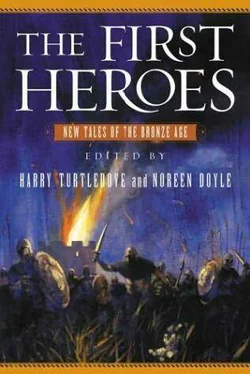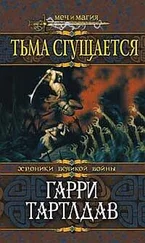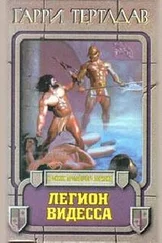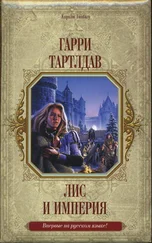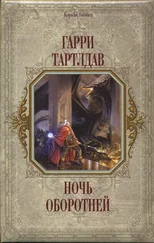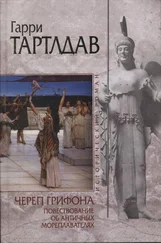Гарри Тертлдав - The First Heroes
Здесь есть возможность читать онлайн «Гарри Тертлдав - The First Heroes» весь текст электронной книги совершенно бесплатно (целиком полную версию без сокращений). В некоторых случаях можно слушать аудио, скачать через торрент в формате fb2 и присутствует краткое содержание. Жанр: Фантастика и фэнтези, на английском языке. Описание произведения, (предисловие) а так же отзывы посетителей доступны на портале библиотеки ЛибКат.
- Название:The First Heroes
- Автор:
- Жанр:
- Год:неизвестен
- ISBN:нет данных
- Рейтинг книги:3 / 5. Голосов: 1
-
Избранное:Добавить в избранное
- Отзывы:
-
Ваша оценка:
- 60
- 1
- 2
- 3
- 4
- 5
The First Heroes: краткое содержание, описание и аннотация
Предлагаем к чтению аннотацию, описание, краткое содержание или предисловие (зависит от того, что написал сам автор книги «The First Heroes»). Если вы не нашли необходимую информацию о книге — напишите в комментариях, мы постараемся отыскать её.
The First Heroes — читать онлайн бесплатно полную книгу (весь текст) целиком
Ниже представлен текст книги, разбитый по страницам. Система сохранения места последней прочитанной страницы, позволяет с удобством читать онлайн бесплатно книгу «The First Heroes», без необходимости каждый раз заново искать на чём Вы остановились. Поставьте закладку, и сможете в любой момент перейти на страницу, на которой закончили чтение.
Интервал:
Закладка:
In this warmth she can finish her task. Getting to her feet presents a challenge, but by clinging to the windowsill she manages to haul herself up. She sets the bucket and the rags outside for her slave—a woman nearly as old and bent as she is—to take away, then pauses to look over her work. In the sunset light the oak planks, polished daily for over forty years, gleam like the pure yellow sun-gold of Witelli. On her bare feet the wood feels smooth and cool, scoured down to a surface as sleek as metal. She turns in a way that mimics Dian's path across the sky, first east, then south, then west, and back, finally, to the north.
Across the little shrine stands a block of gray stone, and behind it on wooden shelves sit the offerings that suppliants have given the god: a beaten silver bowl, a bronze dagger with a blade shaped like a bay leaf, a tripod of bronze and a bronze cauldron to go with it, and a bulbous ingot of pure tin, brought all the way from the edge of the world by a dark-haired trader from the land of Hatti. The strangest gift of all hangs nailed to a side wall. Sea-bird feathers, stuck with wax, cover leather straps and thin strips of wood to form two huge wings, big enough to support a man in the air—or so they seemed to have done. She did see a man glide from the sky and stagger, dragging his wings, down the hillside one bright morning, a half-crazed fellow whose outpouring of speech she found incomprehensible. He wept and moaned, then with a stick drew pictures in the dirt; a huge bull, a man with a bull's head, a boy falling from the sky as his wax wings shed feathers like tears. At last she decided that he had given either the bull or the boy or both to Dian as a sacrifice. In return she fed him and blessed him when he left, still babbling in his strange tongue.
Other suppliants have brought other gifts, but those she bartered to build this shrine, to get a slave, to feed them both in the lean winters. The god never begrudged her the use of his gifts. If he had, Dian Farseer would have slain her and the slave both with his black arrows; Watis is sure of that. But just as Dian pours his golden light freely upon the earth, to her, his priestess and his voice, he has given gold and amber to trade as she needed, and his sister Diana has never begrudged her silver as well. The sun and the moon, the holy twins, their wishes and their supplicants—these have been her entire life. Once she had another name, but the years have scoured it away. As she stands in the doorway to the shrine, the only name she knows is Watis, the seer, the god voice.
When she turns to leave the shrine, the pain in her back stabs her and steals her breath. For a moment she clings to the rough wood of the doorway and gasps. It's time for me to die. That thought has become familiar over the past few months. Whenever her back twists and sags, whenever she cannot breathe from the pain of a back breaking under its own frail weight, the thought comes to her, and she longs for death, for rest deep in the earth. Yet she cannot die and will not die until she has found another woman capable of taking up the god's work.
"It will be soon." The words pour from her own mouth, but they are in the god's voice, deep and hollow. Her body trembles, and she feels sweat trickle down her back and between her breasts. "She will come soon. Her feet are upon my road."
When the god leaves her, Watis staggers outside, calling for the slave. The shrine perches on a ledge halfway up a mountain, overlooking the sea. Above it, steps cut in rock lead to the mouth of a cave. From the ledge she can see down to a village, thatched houses the size of fists from her distance. Two fishing boats, draped in drying nets, stand on the narrow pale beach. The old slave is climbing the twisted path; she puffs and gasps, but she carries only a basket, balanced on one hip. Over the years, she too has lost her name and become merely the slave woman.
"Fish," Serwa gasps. "For dinner."
"Good. They'll make a nice change from barley porridge."
Serwa nods and smiles. Together they turn away from the sea and follow the narrow path that leads past the shrine and down. Already evening's shadows have filled the grassy valley where they have a little square house, shaded by olive trees. Past their cottage lie the fields, all green with tall wheat and barley, that belong to the farmers in the village beyond. Fishers and farmers make up the twin villages of Cumae.
"The god spoke to me today," Watis says. "He's promised me a successor. When she comes, you'll be free." "And where will I go?" Serwa turns to her, and her voice rises in panic. "They took me so long ago, the raiders! Do you think anyone on the island will remember me, even if I could get back there?" "No, they probably won't. Stay here, then. I'll tell the new priestess to find a young slave to wait on both of you." As she speaks, Watis feels a comfortable warmth like remembered sunlight. Soon the new voice will come. She's sure of it. The god, after all, told her so.
Whether or not Dian has sent her, a young woman does appear some days later. The god hangs low in the sunset sky when Watis leaves the house to climb to the shrine to scrub the floor. Leaning on a stout stick, she clambers up the path; every now and then she stops to rest. Just as she reaches the ledge where the shrine perches, she realizes that someone sits sprawled all in a heap by its door—a woman, her long brown hair a tousled mess, her tunic filthy and torn, her face streaked with dirt and old tears. At the sight of Watis hobbling toward her, the woman hauls herself up to a kneel. She looks familiar, Watis realizes, though she cannot find her name in her memory.
"Sanctuary," the woman gasps. "I beg you, please, please help me." Her voice too strikes a familiar note.
"What's so wrong, child?"
"They say I murdered my husband, but I never did. They won't listen. They're right behind me on the road. The gods—our gods, the true gods—hid and helped me, Grandfather Faunus the most, but Dian and Diana came to my aid as well. The men rode right past me. I stood at the forest edge and watched them clatter by without a glance in my direction. Dian must have blinded them with his light. How else could such a thing happen?"
"Slowly, slowly, hush! Who are 'they'? When did—"
"You don't remember me." The young woman's eyes fill with tears. "You don't remember."
"I'm very old, child. I forget everything but those things I need to serve the god." Yet a memory is stirring in her mind, like the flicker of sunlight on a stream. "Wait. You were brought to me as a child for the omens."
"Yes, by my father, Latinus."
"Lawinia! Forgive me, child. So many people have come here since."
"Of course. I should have thought of that. I'm sorry."
"Now, what's this about your husband? I've had news of the wars, and I know that the men from Wilion conquered Latium. Aeneas himself came here, you see, before he reached you. The god told me that he was fated to take your lands."
"And so he did, and me with them." Lawinia sits back on her heels. "My mother hanged herself.
The war drove her to it. Did you know—"
"That I'd not heard, no. What a sad, sad thing!"
Lawinia nods, staring down at the rocky ledge in front of her. "It's all been horrible," she whispers. "I never wanted to marry Turnus, but I didn't want to see him dead. I never wanted Aeneas, either, but I didn't murder him, I swear it!"
"Who thinks you did?"
"His son, of course. Askanios."
"He was always devoted to his father, and his father to him."
"Oh, I'm sure of that! You won't let them take me, will you?" Lawinia's upturned face runs with tears. "Please, please, don't let them take me." "That's not my decision, child. It's up to the god." "But—" "Don't argue! If the god decides you're a murderer, and I lied to save you, then he'd leave me and never speak through me again. I absolutely must tell the truth. Do you understand?"
Читать дальшеИнтервал:
Закладка:
Похожие книги на «The First Heroes»
Представляем Вашему вниманию похожие книги на «The First Heroes» списком для выбора. Мы отобрали схожую по названию и смыслу литературу в надежде предоставить читателям больше вариантов отыскать новые, интересные, ещё непрочитанные произведения.
Обсуждение, отзывы о книге «The First Heroes» и просто собственные мнения читателей. Оставьте ваши комментарии, напишите, что Вы думаете о произведении, его смысле или главных героях. Укажите что конкретно понравилось, а что нет, и почему Вы так считаете.
